After the European Council Croatia Emerged as a True Member of the EU
Adelina Marini, November 7, 2016
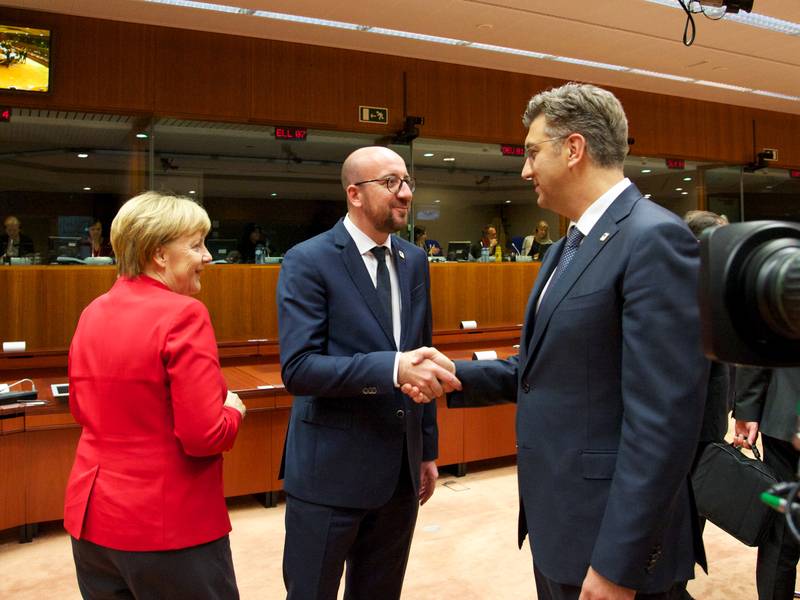 In the days surrounding the October European Council everyone focused not just on the most painful subjects, like the comprehensive economic agreement with Canada and relations with Russia, but also on the debut of British Prime Minister Theresa May on European scene after she stepped into office last summer. And although there was not much drama surrounding her participation and neither was the subject of the Brits’ decision to leave the EU addressed at all, all eyes were locked on Mrs May’s figure. This somehow left in the shadows another debut, which is a total antipode of the Brexit – the Europe-isation and normalisation of Croatia.
In the days surrounding the October European Council everyone focused not just on the most painful subjects, like the comprehensive economic agreement with Canada and relations with Russia, but also on the debut of British Prime Minister Theresa May on European scene after she stepped into office last summer. And although there was not much drama surrounding her participation and neither was the subject of the Brits’ decision to leave the EU addressed at all, all eyes were locked on Mrs May’s figure. This somehow left in the shadows another debut, which is a total antipode of the Brexit – the Europe-isation and normalisation of Croatia.
The EU summit of October 20 and 21 was a first for the new Croatian Prime Minister Andrej Plenković as well, although the European scene is not alien to him at all. Before he assumed the highest office in his home country he used to be an influential member of the European Parliament - vice-chair of one of the most important committees in the EP (the foreign affairs committee) and boss of the EP delegation for relations with Ukraine. As euinside reported, immediately after assuming the leader’s post in the largest and very important political party in the country – the Croatian Democratic Union (HDZ) – following a severe crisis for the party and a catastrophic crash of their first government after the corruption scandals around Sanader, Mr Plenković radically changed the political discourse in Croatia.
He introduced modesty to the discourse, turned his back on nationalism, demonstrated cool headedness, patience, and confidence. What is more, he introduced the European subjects to the everyday political debate. This became particularly evident after the end of the European Council in Brussels, which was his first working day after the parliament voted confidence to his just-formed government, once more in a coalition with the reformists from Most of independent lists (Most NL). The change was felt immediately. Following the example of European-oriented states Andrej Plenković organised a national briefing after the second day of the summit in the special room of Croatia. So far, both PM Zoran Milanović, during whose term Croatia became EU member, and his successor Tihomir Orešković spoke to journalists upon entering or exiting the Council meeting.
To some, this may be a technicality, but in fact it is a very important gesture, for it creates the feeling that the prime minister is available to the public to answer any questions. Croatian correspondents to Brussels, who are not used to such treatment, concentrated most of their questions namely on the issues in the summit’s agenda. Of far greater importance, however, is the prime minister’s decision to introduce the practise of reporting on the results of EU summits before Members of Parliament. He participated [in Croatian] in a debate, which lasted for more than three and a half hours and finally evolved into a quarrel with the newly hatched loud and irritating voice of Euroscepticism, embodied by the young MP from the Eurosceptic and anti-NATO party Live Wall Ivan Pernar.
Andrej Plenković announced in front of MPs that he intended to institute the practise of reporting after every meeting of the European Council, which got applauses from MPs of the entire political spectrum. As was noted by the former deputy foreign minister and currently opposition MP (SDP) Joško Klisović, European politics are no longer part of the foreign affairs, but of the domestic ones. According to Milorad Pupovac, MP from the Independent Democratic Serb Party, this is the best way to regain trust between domestic policy and the European one. This also is the best way to enhance the role of the Croatian Sabor (parliament) regarding European institutions.
Former Deputy PM and Minister of Foreign and European Affairs Vesna Pusić also noted that when we talk about European subjects, we are actually talking about Croatian issues as well. Most emotional, however, was Goran Dodig of the Croatian Christian Democratic Party. “Today, for the first time, I feel like a Member of Parliament, because for the first time we are having a serious and argumentative debate. For the first time, I have the feeling that we are discussing things not from the party trenches, but on problems, which concern us all. I wish to thank the Prime Minister for managing to come to the Sabor and I do not know if he is aware of it, but he gave 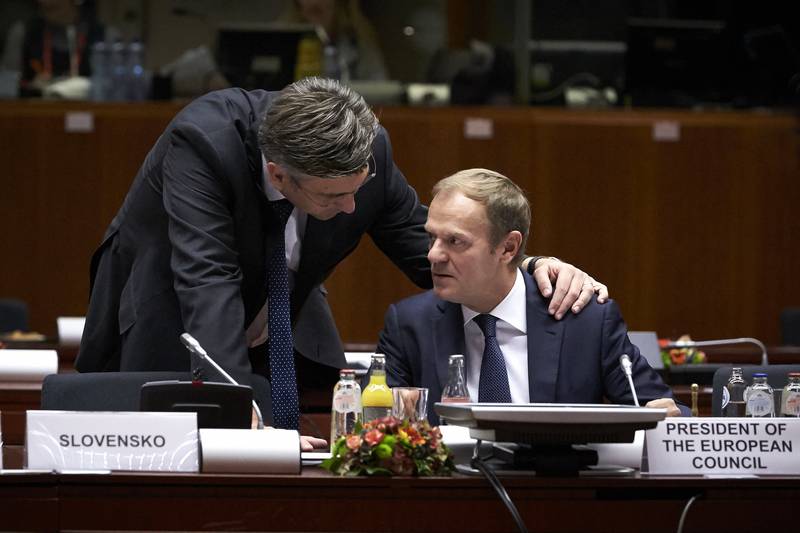 dignity to this Sabor, that in this Sabor and in many of us he created a feeling of usefulness and decency”.
dignity to this Sabor, that in this Sabor and in many of us he created a feeling of usefulness and decency”.
The MP admitted that he has always been a Eurosceptic, but following the debate he had changed his opinion so much that he is aware of the fact that Croatia, being a small country, does not stand many chances without participating in a large and powerful association like the EU. Most NL MP Miro Bulj also admitted that he was against Croatia joining the EU not because of the EU itself, but because the lack of sufficient information on it. Actually, this was the very goal of Mr Plenković, who believes populism and Euroscepticism could be fought only by speaking more and more to the point on European subjects.
Whether due to the fact that he is a dйbutante in the European Council and as a prime minister in general, but during his report (you can download the document itself in Croatian language from here) to MPs of October 26 and also when talking to journalists in Brussels, Andrej Plenković was rather general and cautious, avoided going into details. He listed the main topics of the summit’s agenda – migration, foreign relations and more specifically relations with Russia, trading policy. He announced that representatives from the Croatian Ministry of Internal Affairs will participate in the new European Border and Coast Guard Agency and advocated for a common policy of return of illegal immigrants on a full EU level. He revealed that a large portion of the discussion on the migration subject concentrated on the European solidarity concept and presented the two streams – Orbán’s of flexible solidarity and the old European notion of “true solidarity”. He did not share which group does he count Croatia in.
On trading policy, he hailed the agreement with Canada by stating that it opens up many possibilities, especially for small Croatian enterprises. He is for a quick ratification of the agreement. Regarding Russia, Plenković again was streamlined and rather reiterated in most general terms what the leaders talked about instead of presenting Croatia’s vision on the subject. This was the very thing that drew the most criticism from Croatian MPs. Against the lack of concrete information objected left-wing MP Gordan Maras. Nikola Grmoja of Most NL called for a thorough discussion of the contents of the agreement at the ratification. Joško Klisović was the most thorough in his questions and criticism towards the PM.
“We did not hear from the government what its priorities are in dealing with migration. The entering of Bulgaria and Romania in Schengen continues to be delayed due to the migration question. Speaking of which, what is happening with Croatia’s membership in Schengen? Does the government support the transfer of focus from the Balkan route to the Central-Mediterranean route? He did not tell us what the position is on flexible solidarity. Does the EU possess the ability to lead successful trading policy?”, were some of his questions, among which were also whether the government has an analysis of the effect of the Brexit and whether it has offered that some of the agencies, which are currently in great Britain be transferred to Croatia, like the pharmaceutical agency or the European Banking Authority for example.
Vesna Pusić asked for a national crisis management debate to be organised on migration, which would lead to the development of a strategy. She remarked that the same mistake is being made again and again – placing migration and the refugee crisis in one and the same package. “Those are two totally different things, which intersect, but each requires its own instruments and strategies”, she said. In her opinion, the “Fortress Europe” concept cannot function. Ivan Lovrinović from “Let’s change Croatia” noted that in the EU there are strong disintegration processes going on, especially pointing out the Visegrad group and calling that these issues be discussed over the next two months.
Gordan Jandroković, former minister of foreign affairs and former leader of the parliamentary committee on European issues (HDZ) called for ministers too to be more active on European issues in the respective committees.
Branimir Bunjac of Live Wall, however, snapped that to the Croatian public it is of no interest discussing European subjects, for people are more interested why since the membership 200 000 people have left Croatia. The first two hours of the debate went on smoothly and to the point, until Ivan Pernar walked on stage, the man who made Croatian media mark the birth of the term “pernarism”, which is a synonym to Trumpiotism, Euroscepticism, or populism. As euinside reported, the young MP on several occasions passionately defended Russia and blamed America for all worldly disasters. He believes Croatia has the policy of a servant towards Brussels and Washington.
His positions caused turbulent reactions in many MPs who were head over heel in criticising him on not dealing in facts, and insulting citizens, who voted for their MPs by calling everyone a servant to Brussels or America. Some of them reminded him that due to positions like these, Croatia today may not have been an independent state. They also told him that the EU and America may not be perfect, but are to be preferred than serving Moscow. This part of the discussion went on for an hour and a half and showed clearly that, at this stage, the soil in Croatia is not a good seeding ground for pro-Russian politics. Croatia is grateful to Ukraine for it was the first country to recognise Croatian independence. Besides, Croatia understands Ukraine very well because of Crimea, for it connects this episode with its own experience in separating from the former Yugoslavia.
Introducing European subjects in the internal political debate in Croatia also led to commentaries and analyses in Croatian media. The most in-depth one is by Velimir Šonje in tportal of last week. The author points out [in Croatian] five reasons why Croatia has lost Europe when Europe gained Croatia. “On this day – July 1st 2013 – Croatia lost Europe”, he writes. And the reasons for it are the political quarrels during the crisis; the return to the past; the financial and economic crisis in the EU; the radicalisation of the European East, especially after the refugee shock; the appearance of idea-less political alternatives.
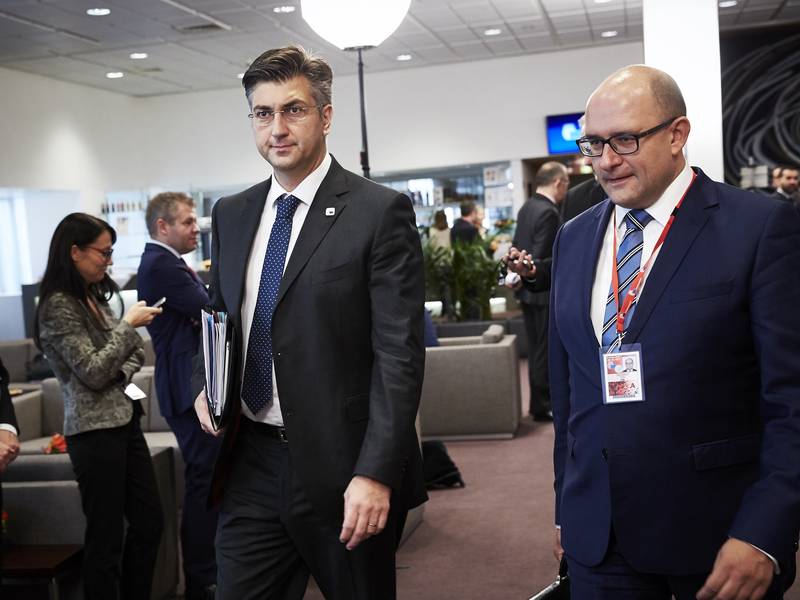 “This is why it has to be repeated constantly that we have entered the EU formally-politically, but mentally and politically we are far away from its liberal democracy and settled market economy. Croatia needs to once again find Europe as a motive. And not the metal Eastern Europe, but the the free and potent Central and Northern Europe, which allows for individual growth and expression. Wouldn’t it be, for us and our future, a carrier rocket to find out what and how are Austrians and Dutchmen doing, rather than Greeks? There is more being written in Croatia about Venezuela and North Korea than about The Netherlands”, comments Velimir Šonje
“This is why it has to be repeated constantly that we have entered the EU formally-politically, but mentally and politically we are far away from its liberal democracy and settled market economy. Croatia needs to once again find Europe as a motive. And not the metal Eastern Europe, but the the free and potent Central and Northern Europe, which allows for individual growth and expression. Wouldn’t it be, for us and our future, a carrier rocket to find out what and how are Austrians and Dutchmen doing, rather than Greeks? There is more being written in Croatia about Venezuela and North Korea than about The Netherlands”, comments Velimir Šonje
The prime minister’s intention of driving in the European Union and its agenda into the domestic policy of Croatia will surely aid Croats in discovering Europe as a motive. This could be hiding the risk of the country turning into a Eurosceptic from a Eurorealist, but it is more likely to boost its pro-European orientation. At this stage it is important to note, however that against the background of Theresa May’s Brexit debut in the European Council there was also a pro-European debut by a country, which is extremely important to the EU in a geopolitical sense. At a moment, when the Western Balkans are once more boiling in turmoil, it is very important that the EU has on its external border a country with a strong European orientation, from the tribune of which the most important European subjects are being discussed, in a language understandable to the region. This would have a powerful effect on the stabilisation and Europe-isation of the Western Balkans.
Translated by Stanimir Stoev
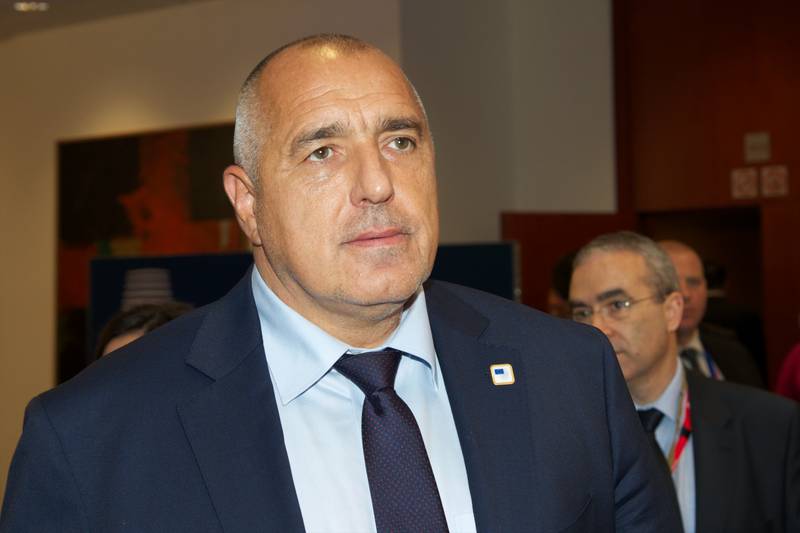 Boyko Borissov | © Council of the EU
Boyko Borissov | © Council of the EU Merkel, Michel, Plenkovic | © Council of the EU
Merkel, Michel, Plenkovic | © Council of the EU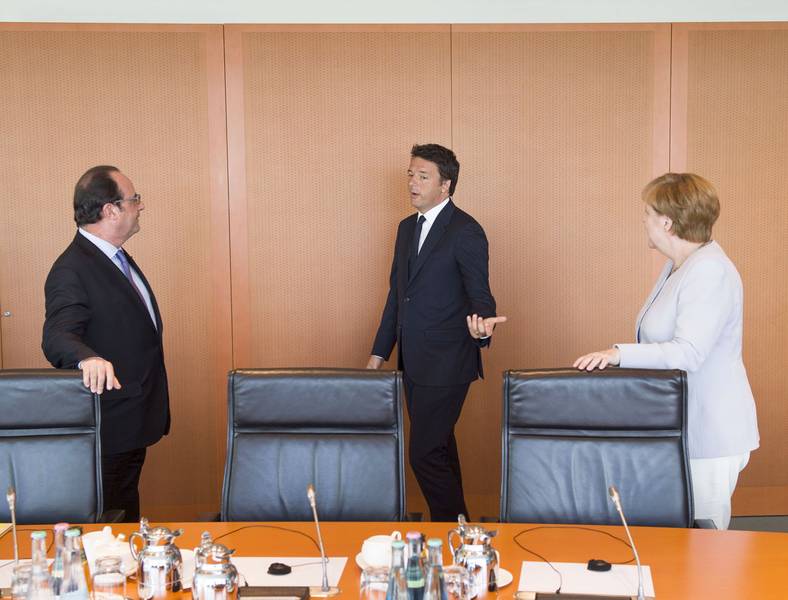 Hollande, Renzi, Merkel | © Council of the EU
Hollande, Renzi, Merkel | © Council of the EU Kolinda Grabar-Kitarovic | © KGK
Kolinda Grabar-Kitarovic | © KGK Jozo Rados | © European Parliament
Jozo Rados | © European Parliament Aleksandar Vucic, Andrej Plenkovic | © Vlada RH
Aleksandar Vucic, Andrej Plenkovic | © Vlada RH